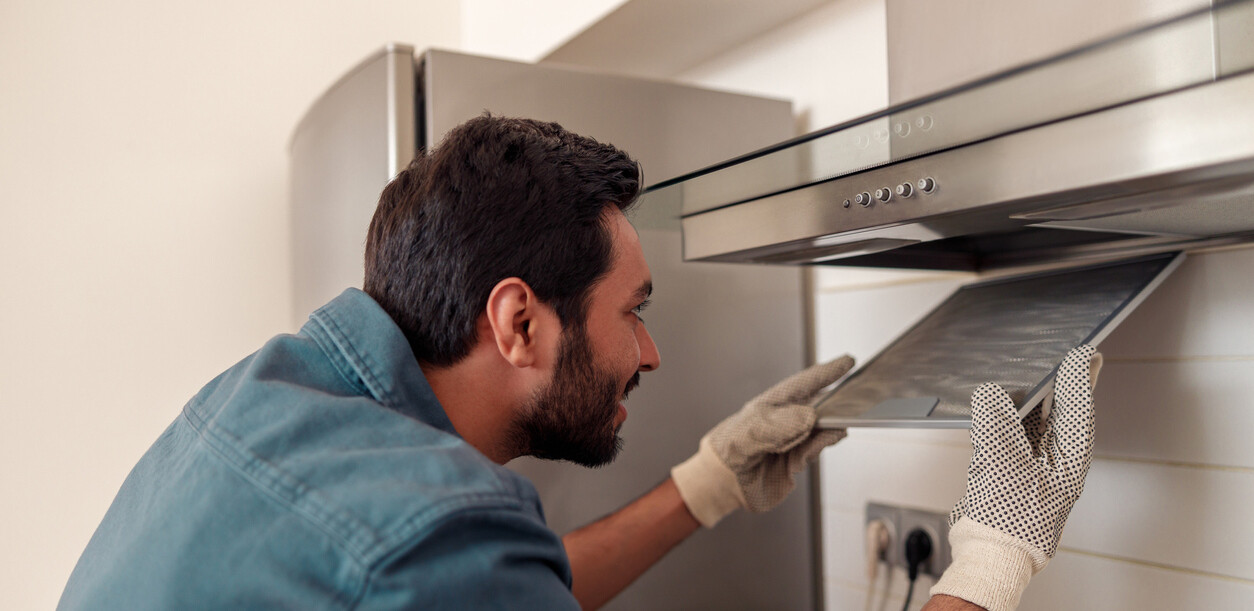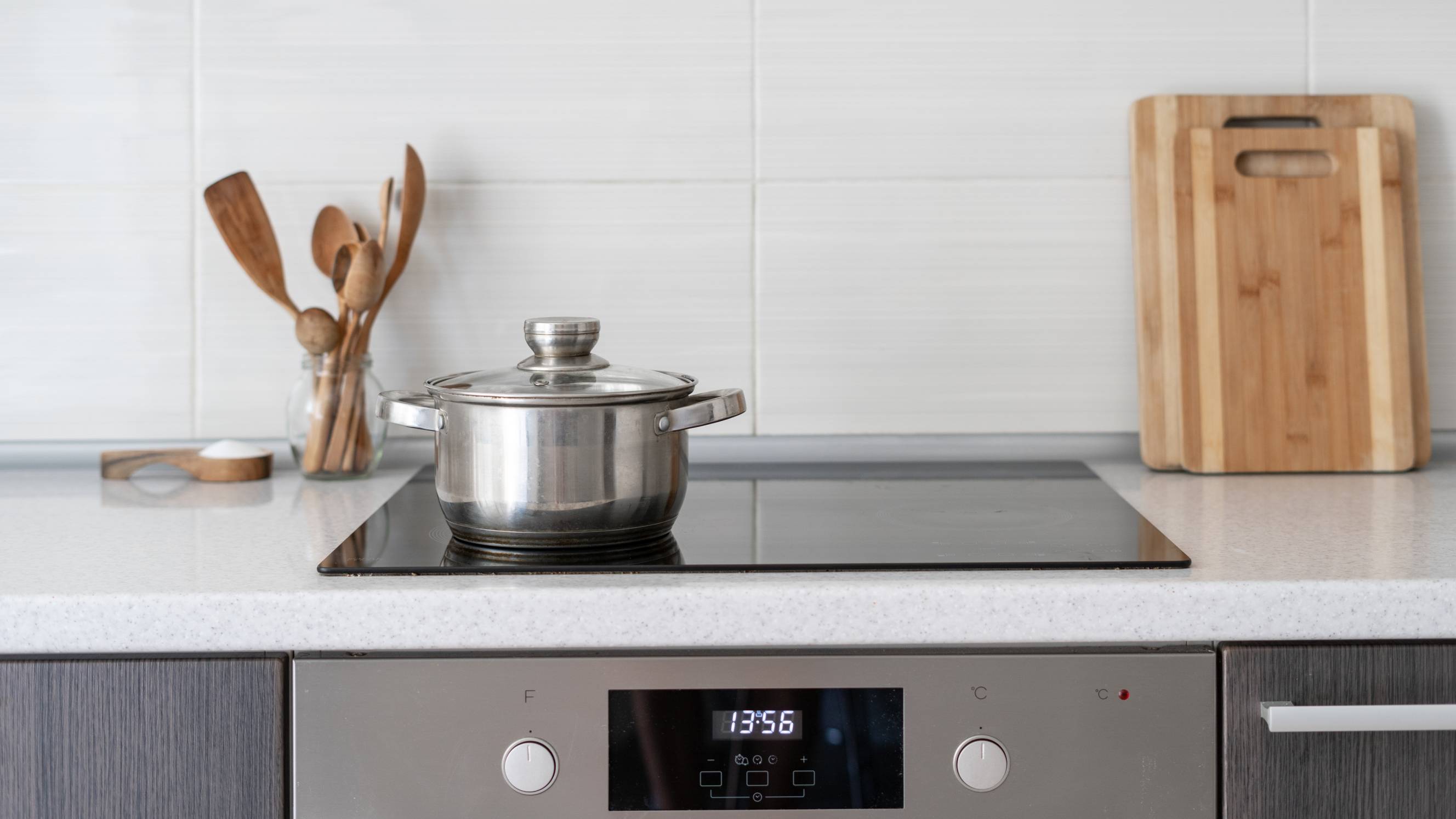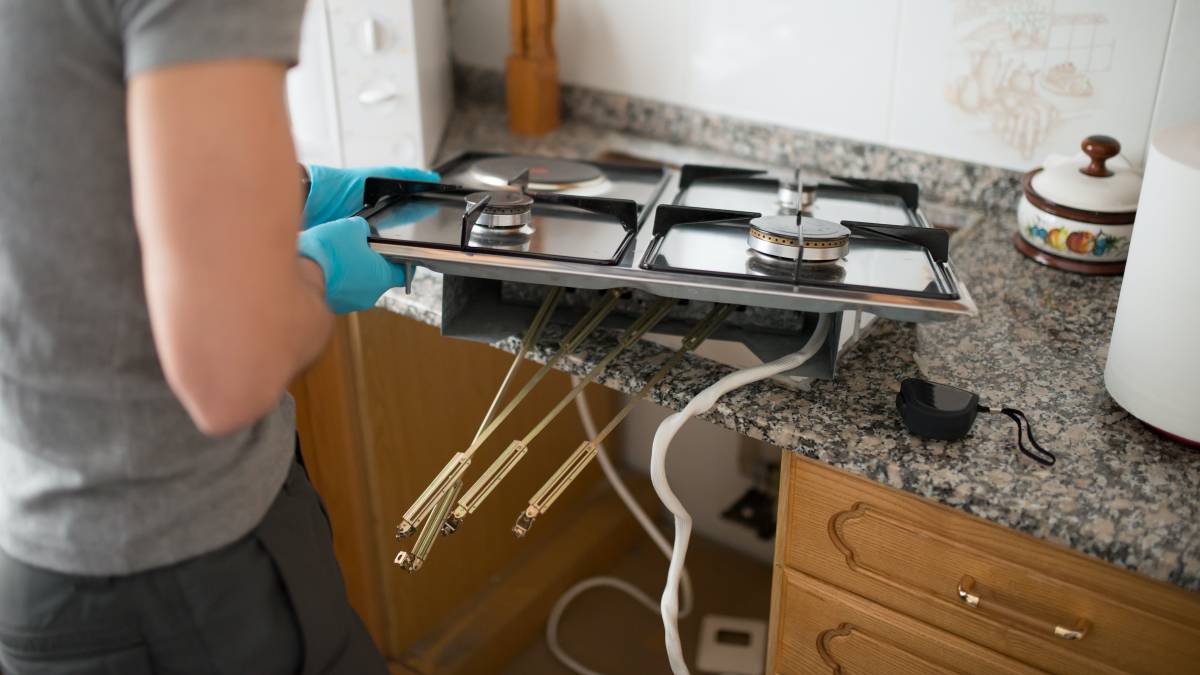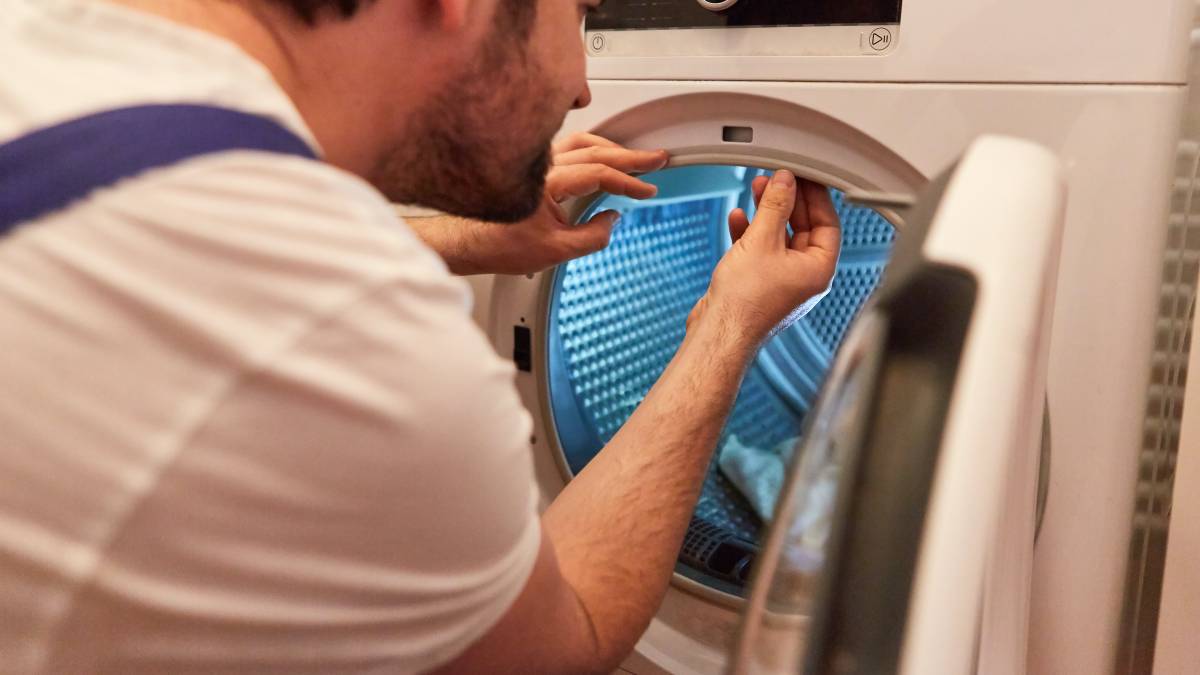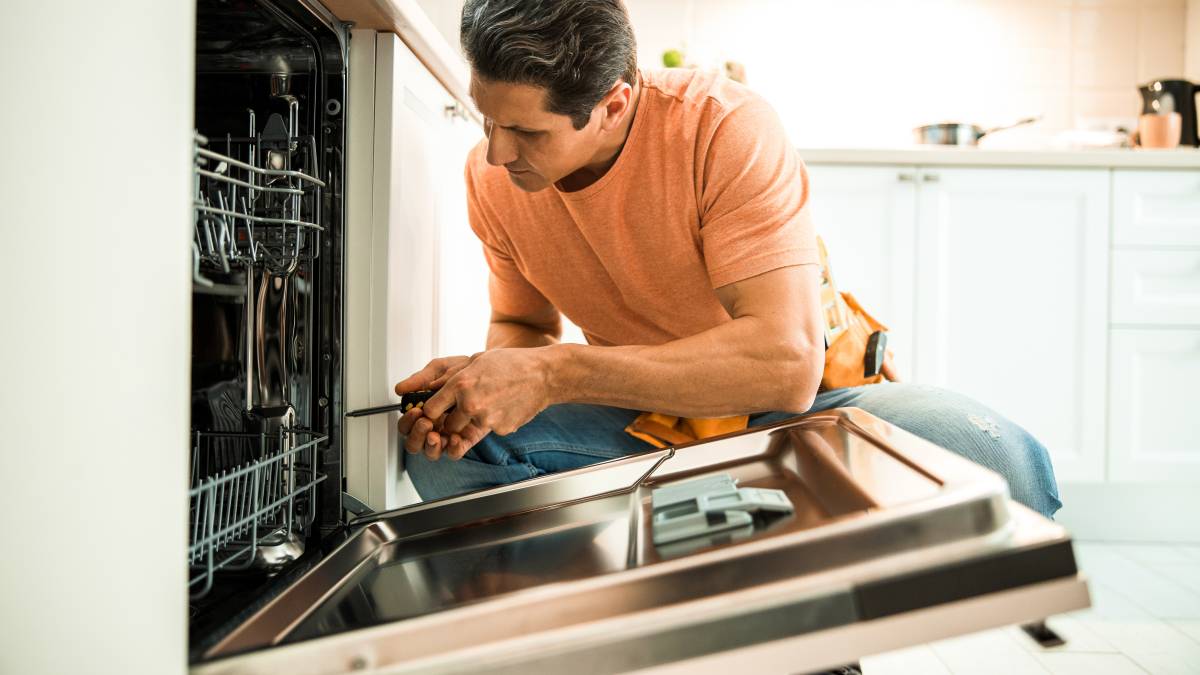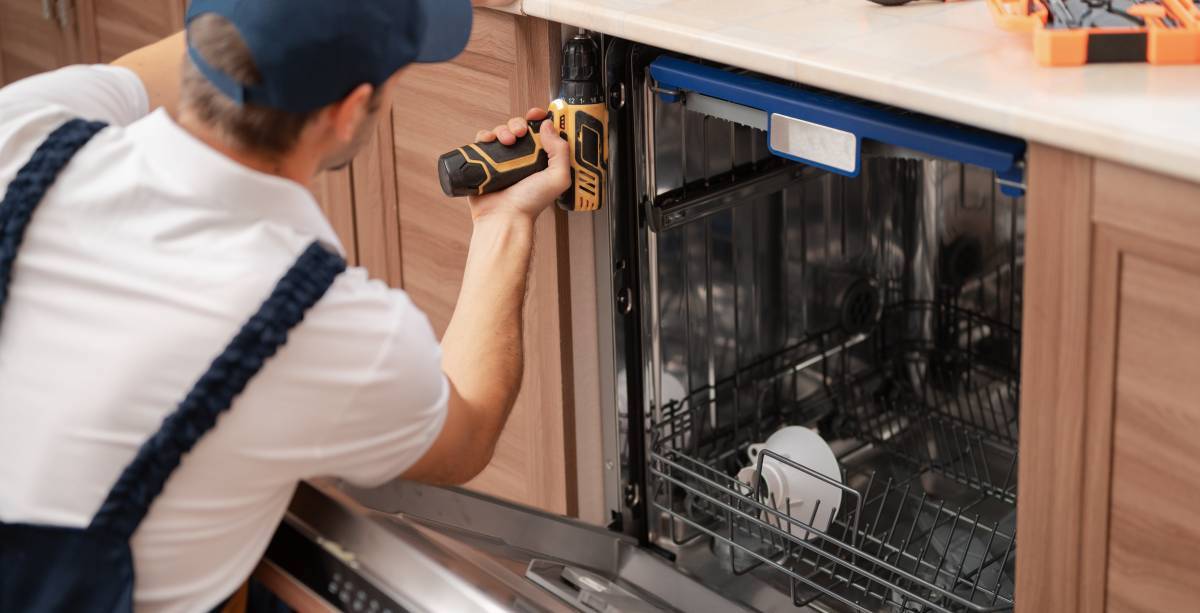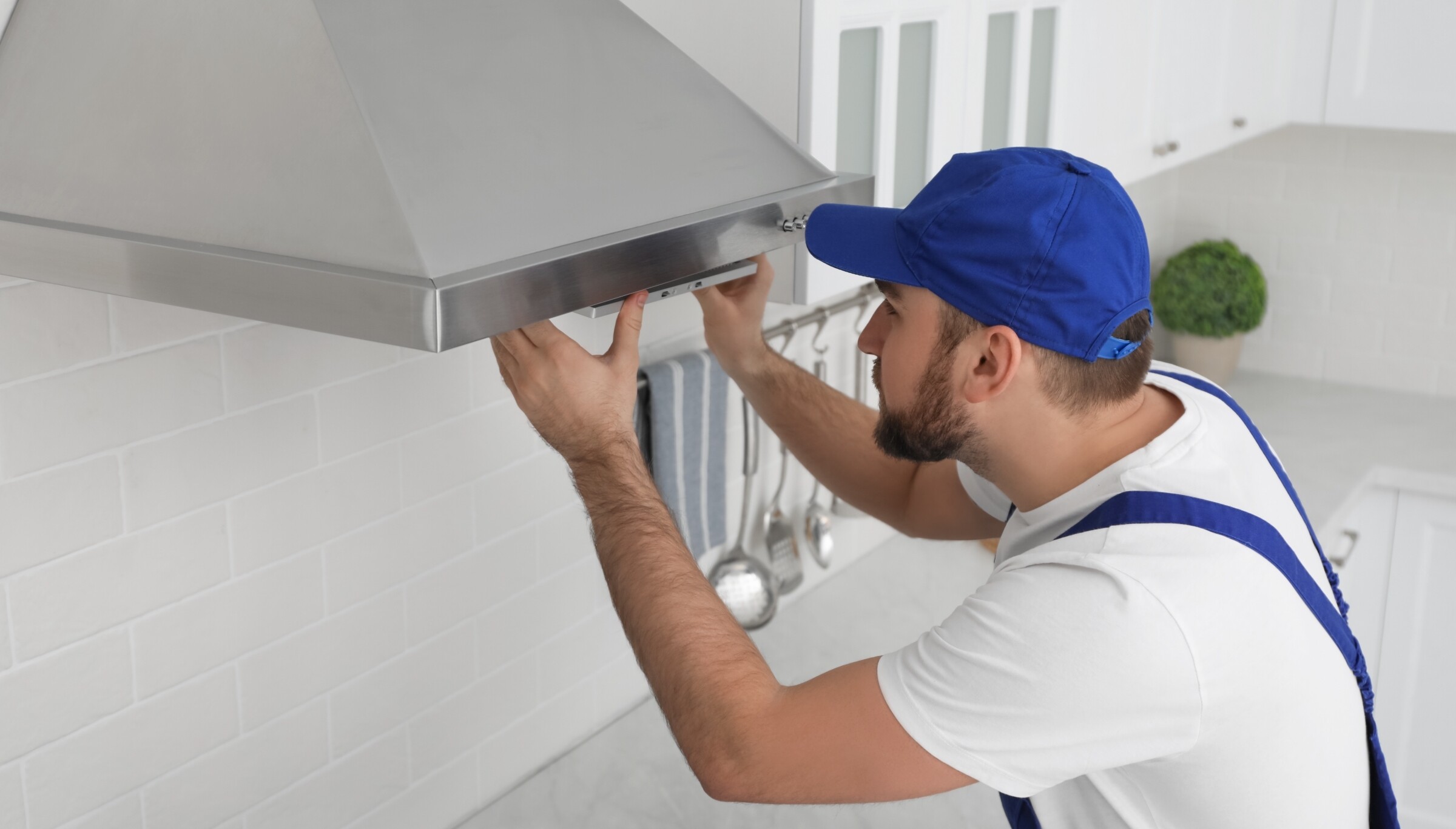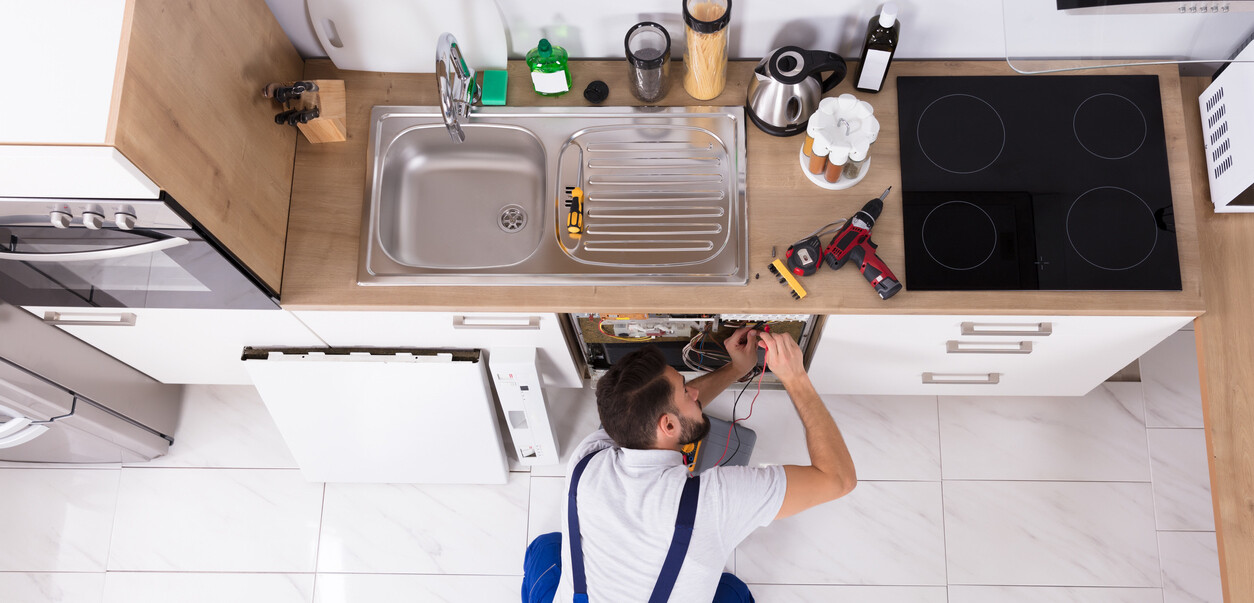
- Home/
- Guides/
- Appliance Installation/
- How to Install a Dishwasher
How to install a dishwasher in 6 steps
Learn how to install a dishwasher to save time and water when doing your dishes.
Published on
Key Facts
- Read the instructions carefully and completely. Each dishwasher is different, so it’s important to understand the steps involved in installing your model.
- Make sure the electrical and water connections are up to code. A qualified electrician or plumber should inspect these connections to ensure they are safe and meet all applicable codes.
- Level the dishwasher before installing it. A dishwasher that is not level will not operate properly. You can use a bubble level to check the dishwasher for levelness.
Clean up in a time-saving and water-efficient way by using a dishwasher. It cleans all your dishes well all at the same time and only uses 1/9th the amount of water hand washing uses. It’s also a great way to free up counter space, ensuring your kitchen isn’t littered with dirty dishes.
It doesn’t take a rocket scientist to install a dishwasher in your kitchen, but since it uses water and electricity, it’s important to plan the installation. Learn how to install a dishwasher safely and easily with this guide!
Things You’ll Need
Depending on what comes in the box, you’ll need different items for dishwasher installation. Besides the materials that come in the box, like drain hoses, these are a few materials that could be useful for most types of dishwashers:
Screwdriver
Adjustable wrench
Level
Pliers
Tape
Mop and bucket for clean-up
Time of Completion
If you’re replacing a dishwasher with an existing water supply line and electrical wiring, the process should only take 1-4 hours.
Installing a new dishwasher could take a full day and requires a licensed plumber and an electrician to set it up.
Steps to install a dishwasher
If you’re installing a new dishwasher, call a plumber and electrician to install the drain hose, electrical wires, and water supply line. This guide will focus on the step-by-step procedure for removing an old dishwasher and installing one yourself.
Step 1: Uninstalling your old dishwasher

Your old dishwasher’s electrical parts are hidden under the machine, behind the front panel that covers it on the bottom. Unscrew that panel to see the power cord. Check that the electrical supply line is disconnected before going further to avoid accidents.
Next, disconnect the water supply line using a wrench. Remove the hose that attaches to the water supply, then take note of the orientation of this hose, as you’ll need your new hose clamp at the same angle.
Lastly, disconnect the drain hose and slide out the old dishwasher. The flexible hose is easily detachable. Have a rag and mop ready for any excess water spilling. Then, remove the old unit by sliding it while ensuring the drain hose goes through the hole it’s gliding through. Lower the dishwasher’s feet if you need more room to wiggle it out of the cabinet unit.
Step 2: Inspect your new dishwasher
Take your new dishwasher out of its box and read the instruction manual carefully to learn how to connect a dishwasher of that model. Each dishwasher is different, but most models should have similar features to your old dishwasher.
A tip for seamless installation is to lay cardboard near the kitchen sink and unpack the dishwasher to make it easy to slide into the dishwasher cavity later.
Step 3: Set up the electrical line
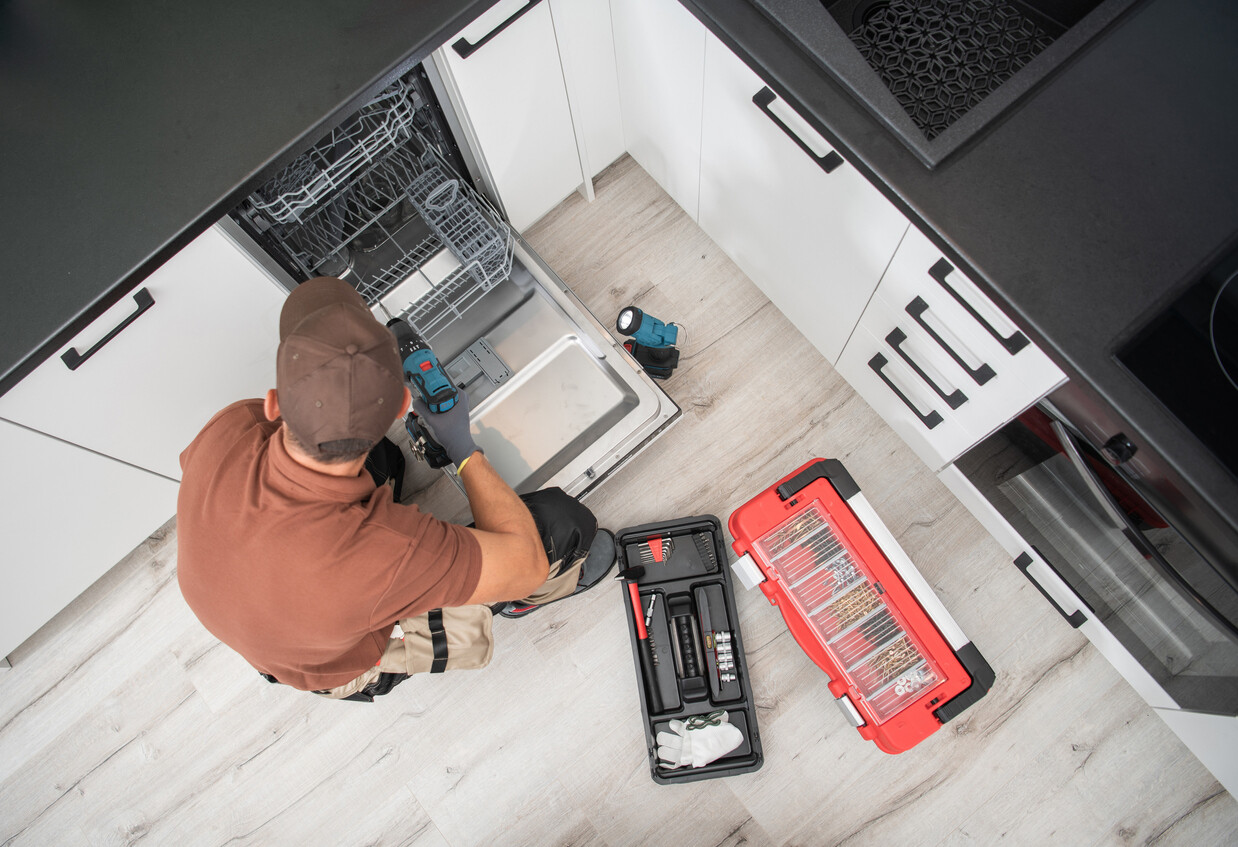
The most complicated setup with your dishwasher lies in its electronics. It’s perfectly understandable if you’d rather have an electrician hook this up if your new dishwasher differs from the plug-and-go type.
The wire connection housing unit is located underneath the dishwasher’s body. While you can crouch or lie flat on the ground to reach it, you can also just put the dishwasher on its back. Thread your power cord and make the connections in your dishwasher’s manual. Use wire nuts when necessary to connect them correctly. Afterwards, carefully stand the dishwasher back up.
Step 4: Attach the water supply and the drain hose
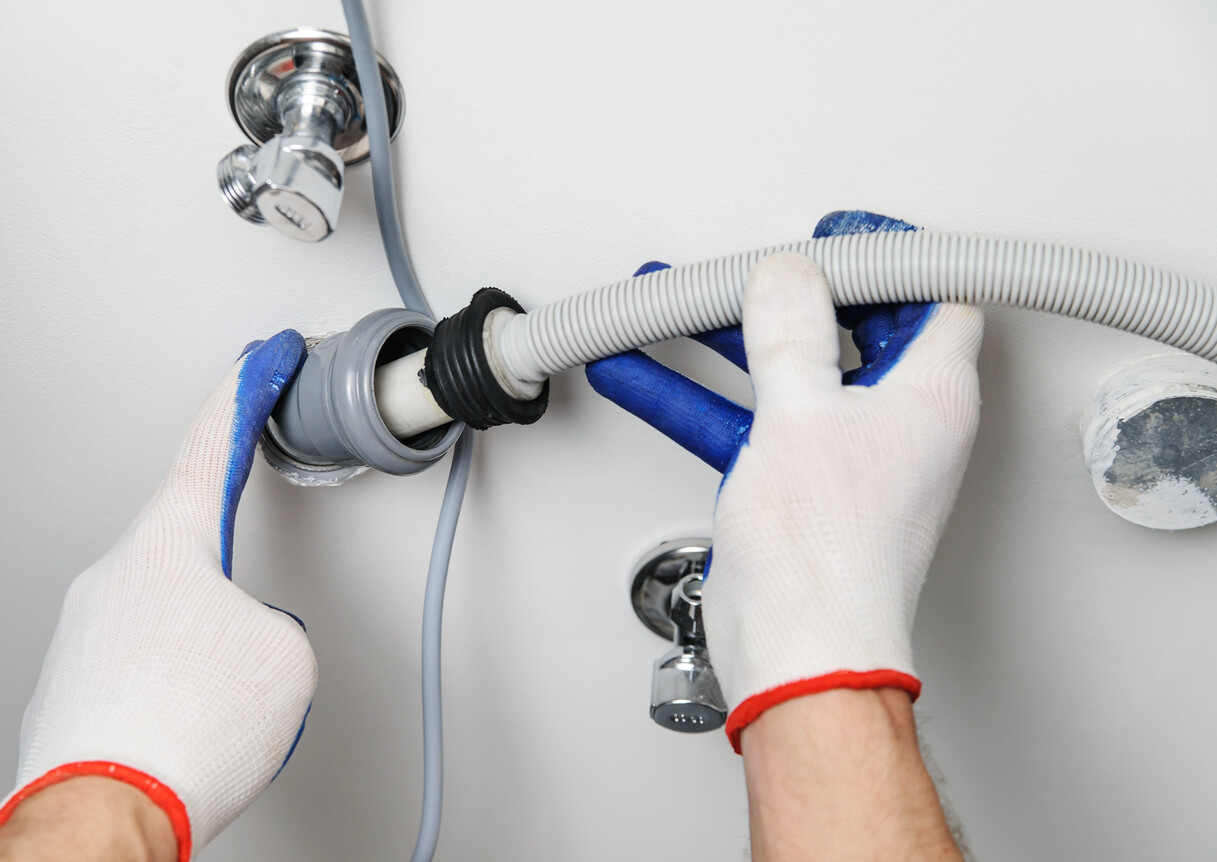
It’s less complicated to deal with the plumbing on a dishwasher install, but you must still be careful. Your dishwasher connector kit should have everything in it to connect the machine. Attach the dishwasher 90 to the water inlet fitting on the solenoid valve. You can then attach the water supply tube to the dishwasher 90. Make sure to tighten it with a wrench to prevent any leaks.
The dishwasher drain hose is usually already attached, but if it isn’t, it’s simple to put on with a hose clamp. From here, check what type of drain line you have because this will affect how it attaches to your kitchen sink drain. Read the instruction manual whether you have an air gap fitting or a high loop, which are ways to prevent dirty water from siphoning back through the drain hose.
Step 5: Align, level, and anchor
After attaching the power, water, and drain, you can put it back into the same cabinet void. Put on the dishwasher feet and measure the height required for a gapless fit into the sink cabinet. This alignment helps it blend in so your dishwasher doesn’t slide out. Level it out after putting it in so it’s not tilted.
Once you have a proper fit into the counter, anchor it so it doesn’t move around. Open the dishwasher door and use the mounting brackets to screw its sides into your counter. A tightly secured dishwasher prevents the door from opening and causing a mess everywhere.
Step 6: Do a test cycle
Once you have it installed, check if it works! Your electrical connections must be redone if it doesn’t turn on from the get-go. If you go through a wash cycle and there’s water coming out from the bottom, you must check the dishwasher water connection and the drain line.
More tips for installing a new dishwasher
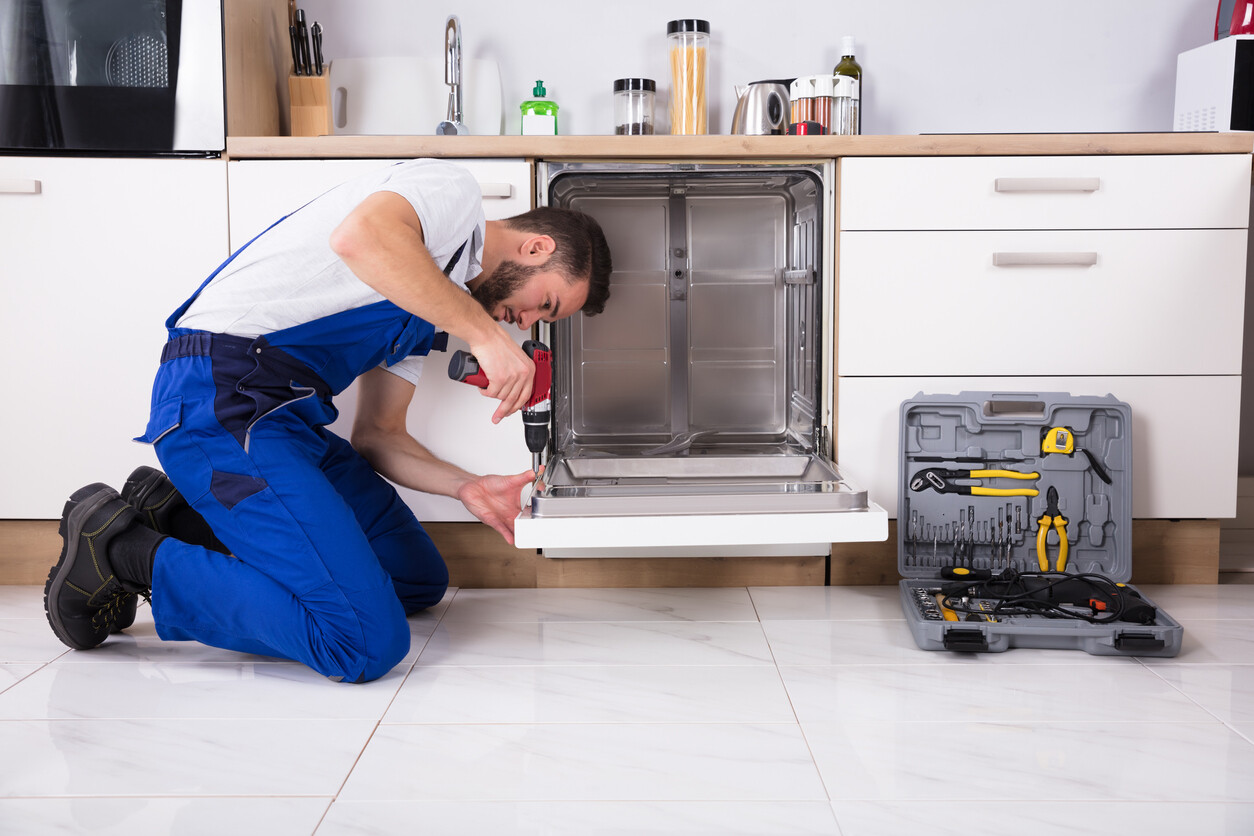
Measure the dishwasher before buying it. Most dishwashers are 24 inches wide.
Waterproof your countertops by applying a sealant and insulating the dishwasher. Steam comes off the machine, which condensates and can create wet spots on your counters. Install it in a separate unit and check that steam doesn’t collect under your marble countertops.
If you’re having trouble taking the old dishwasher out, try penetrating oil, which helps the dishwasher’s feet slide. You can also try sliding a rug or cardboard underneath to create a better sliding surface.
There are different types of dishwashers. The dish drawer style is the most common type. It fits into the cupboard like a dish drawer, hence the name! There’s also a freestanding dishwasher where it stands like any other appliance. There are also built-in dishwashers, which you can have installed by a professional.
Put in a new dishwasher in no time
Set yourself up for success when installing a dishwasher by preparing all the materials you need and reading the instructions thoroughly.
If you don’t feel confident and want to install the dishwasher properly without any problems, then use Airtasker to call a qualified professional who can take on the task. The platform has plenty of Taskers who are experts in installing machinery, which means all you need to do is post a task and schedule the service. You can have a working dishwasher in no time!
FAQs on dishwasher installation
Yes, it is possible to install a dishwasher by yourself! Especially if you’re only putting in a replacement for an old unit, you’ll already have the drain and water lines set up, as well as the electrical connections you need. All you need to do is follow the manual that comes with your dishwasher.
If installing a dishwasher for the first time, call a plumber to help you set up the line from your sink drain to your dishwasher. These lines are only possible to manage with a licensed expert.
Only if you still need to get electrical wiring set up. Electricians also help you configure an electrical outlet near your sink so you have an easy time hooking up your dishwasher.
Find appliance installers, fast
Find an appliance installers
Related articles
Related price guides
